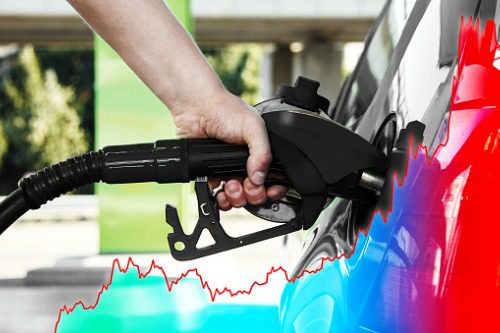Aviva survey shows drivers gearing up to save money as fuel prices soar

Nearly half (48%) of UK adults say they are using less motor fuel than a year agoThe vast majority are taking steps to reduce their fuel usage, but 16% are taking no actionNearly half (44%) are using their vehicles for essential journeys onlyTwo in five (39%) are walking rather than drivingOne in six (16%) is using public transport instead of their car, 10% are opting to ride a bicycle and 8% are car-sharingNearly a quarter (22%) are reducing their speed and 18% are accelerating and braking more smoothly to save fuelThe findings tie in with Aviva’s driver data, which reveals an improvement in smooth driving
Nearly half (48%) of UK adults say they are using less motor fuel than a year ago, and 45% report using less than a month ago, as forecourt prices continue to soar, according to an Aviva survey.
The price of motor fuel has increased by 32.8% over the past 12 months, and with the cost of filling an average family car now more than £1003, drivers have revealed the actions they are taking to reduce their fuel bills.
A survey by the insurer asked people what steps, if any, they were taking to reduce their fuel usage, finding only 16% of respondents are taking no action.
Nearly half (44%) say they are using their vehicles for essential journeys only, while 39% say they are walking on occasion rather than driving.
Others reveal how they are using public transport instead of their own vehicle (16%), while 10% say they are riding a bicycle and 8% report car-sharing with others.
Some (13%) say they have been working from home more often to avoid spending money on commuting.
The research also gives an insight into how motorists are trying to save money when they do need to use their vehicles, with just over a quarter (26%) saying they are putting less fuel in their tank at the pumps.
Nearly a quarter (22%) say they are driving at lower speeds and 18% report accelerating and braking more gradually to save fuel.
Matthew Washer, Head of Connected Motor at Aviva, says: “The survey results give a fascinating insight into how people are changing their driving behaviour.
“They also correspond with our own driving data relating to Aviva customers, which reveals a visible improvement in smooth driving between March and May 2022, compared to the same period in 2021 and 2020.
“As fuel prices reach an all-time high, drivers can take some comfort from the fact that by driving more smoothly and attentively, they will not only be saving fuel and money, but helping to make the roads safer and reducing their impact on the environment.”
To help you save money on driving, Aviva has put together some tips:
Shop around: As you drive around, note which filling stations are cheapest and stop there when you’re passing. Bear in mind supermarkets can be competitive on price and may fill up your points card, too.Tyre pressure: If your tyres are under- or over-inflated, your fuel won’t be taking you as far as it should. Check the manufacturer’s recommendations and make sure they’re pumped up to the right pressure, according to your vehicle’s load.Lighten the load: Every excess pound your car is carrying can decrease your fuel economy, so remove any junk and keep only important items like the hydraulic jack, early warning devices and any tools you might need in an emergency.Fuel’s heavy, too: If you tend to make short trips, it might be worth running your car with the tank a quarter full and topping up often with small amounts.Don’t be a drag: Consider removing bike racks and roof racks, bars and boxes, unless you are using them every day. All of these will create wind resistance and cause your car to use more fuel through the ‘drag’ effect.Don’t be an idler: New cars tend to switch off the engine every time you stop. If your vehicle doesn’t, you’ll save fuel by doing this yourself. Don’t forget that stationary idling is against the law.Dress for the weather: Blasting the air-con or turning up the heating may feel necessary but it does impact the amount of fuel you use, as does opening the windows if it’s too hot.Do all your errands in one trip: Once a car’s engine is warm it will run at its most fuel-efficient, so why not tick off as much of your to-do list as you can in one journey?Change your driving style: If you hit high speeds before your engine is warm, you will waste fuel. Shift to higher gears as soon as possible and avoid slamming your foot on the accelerator and brake. In an electric vehicle, keeping momentum is the key to efficient driving.Rethink your plans: Do you really need to drive? Could you car-share, take public transport or get your shopping delivered? This might not be the best option for every journey, but it could make a difference.Finally, don’t forget about insurance: If you’ve got more than one car in the household, it may be cheaper to buy a multi-car policy than one for each car. Make sure your policy is based on the number of miles you drive – especially if you’re cutting back – and check what your cover includes, so you’re not paying for things you don’t need.
Authored by Aviva





